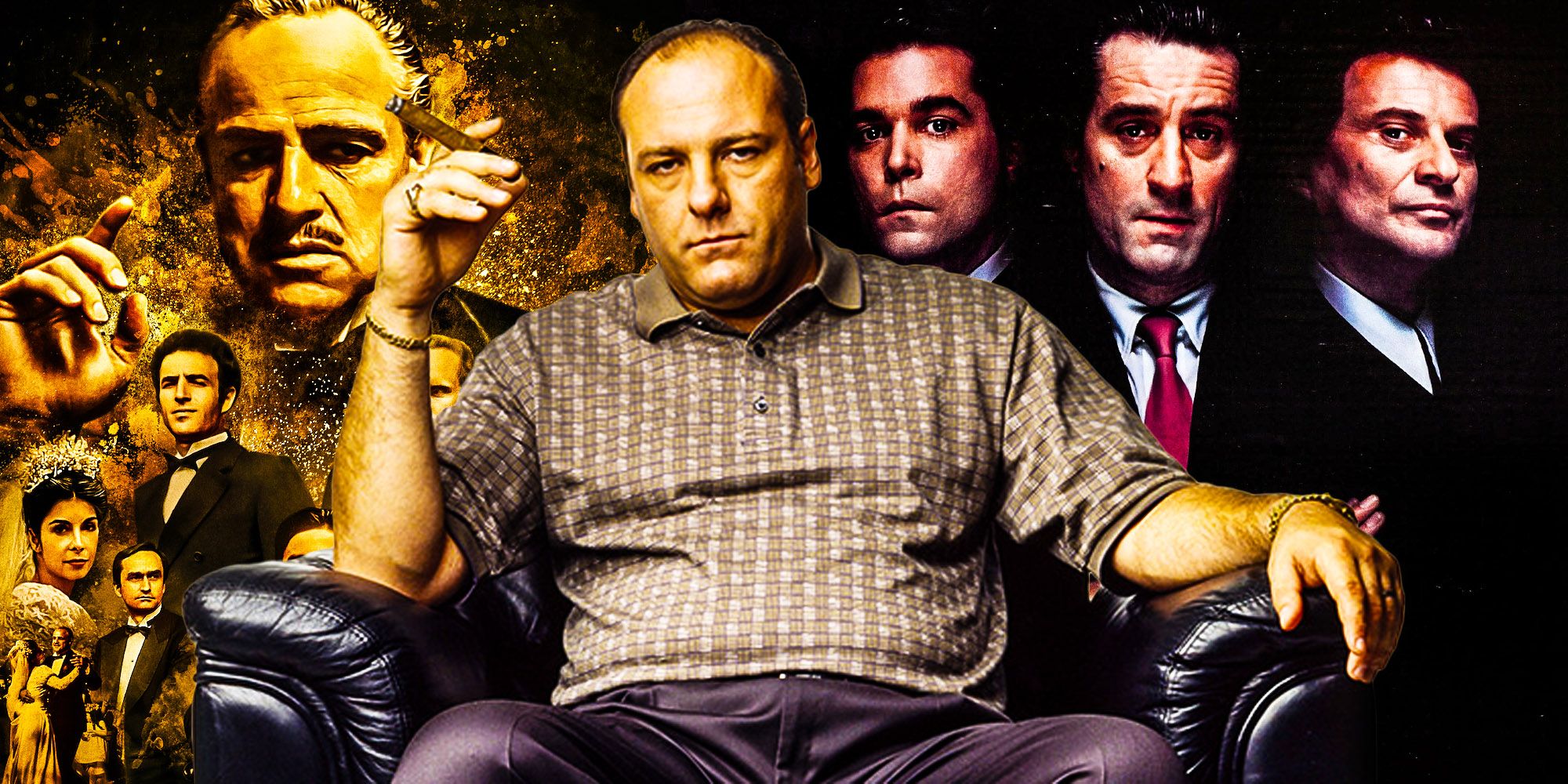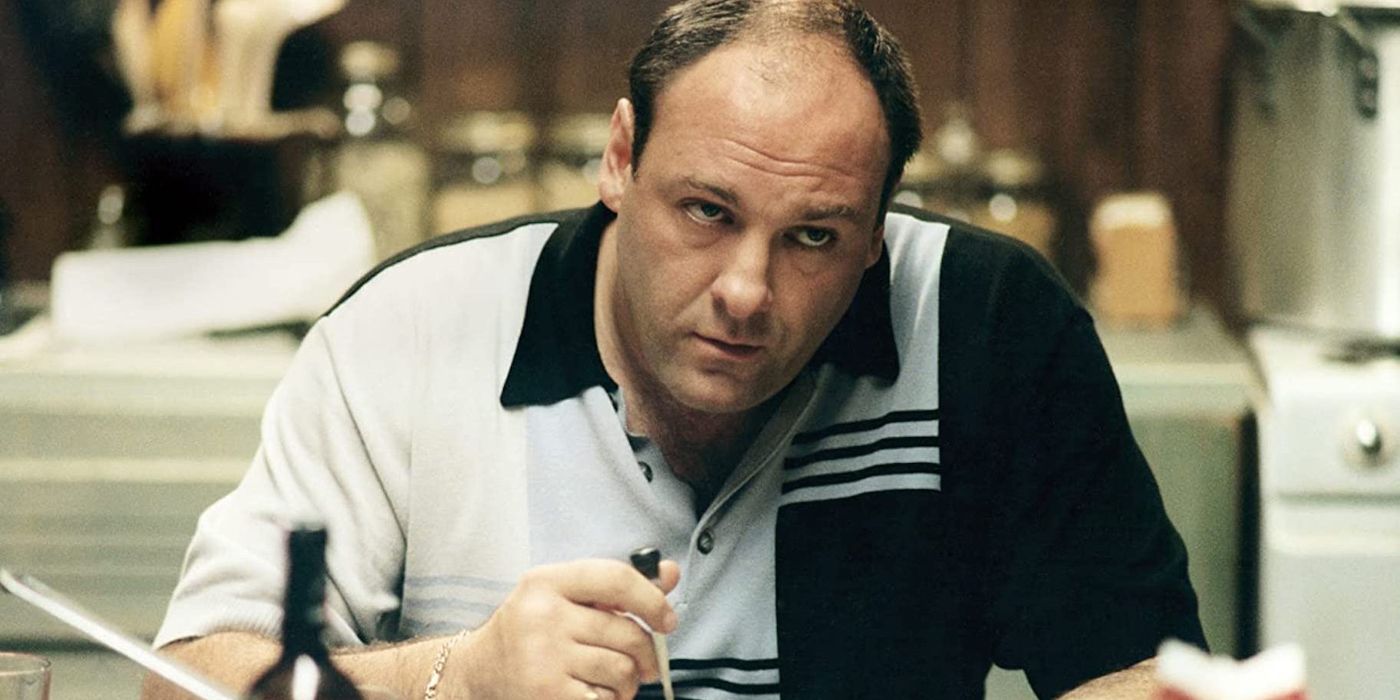When people talk about The Sopranos, they often refer to the influence of Martin Scorsese's Goodfellas, but series protagonist Tony Soprano owes more to The Godfather. Released in 1972, Francis Ford Coppola's feature adaptation of Mario Puzo's novel continues to be hugely influential. When The Sopranos began in 1999, it was critically acclaimed for the way in which it balanced the tropes of the gangster movie with both domestic drama and contemporary psychiatry. David Chase's landmark series has been as influential on television as The Godfather was on movies.
Talking about the genesis of The Sopranos, creator David Chase cites Martin Scorsese's Goodfellas as another influence on the show. It even features several actors in the cast who also appeared in the Scorsese film, most notably Lorraine Bracco, who plays Henry Hill's wife Karen in Goodfellas and Tony Soprano's therapist Dr. Melfi in The Sopranos. Martin Scorsese's Goodfellas is also an influence on Christopher Moltisanti, Tony's criminal cousin and aspiring filmmaker, who tries and fails to meet the director. However, The Godfather also casts a long shadow over The Sopranos. Tony's closest advisor Silvio regularly quotes Al Pacino's famous "Just when I thought I was out..." speech to the repeated delight of his friends and colleagues. The influence of the Coppola film runs much deeper than this, however.
Both The Godfather and The Sopranos are family dramas. They are the stories of the sons of powerful and influential figures within organized crime. Due to tragedies that are devastatingly domestic – Jackie Aprile's cancer and Vito Corleone's heart attack – Tony Soprano and Michael Corleone become leaders of their respective crime families. Like Vito Corleone, Tony Soprano wants his son Anthony Jr. to have no part in the family business. However, the pressure that Tony puts upon A.J. to live a better life leads him to a mental health crisis that mirrors Tony's own. A.J doesn't inherit the family business, but still inherits the anxieties and self-loathing of his father. Tony and A.J's relationship in Sopranos retools that of Godfather's Vito and Michael for a time in which male mental health and toxic masculinity are increasingly becoming part of the wider societal conversation. It's the strongest example of how The Sopranos is just as interested in the internal, emotional lives of the characters as it is the internal politics of organized crime.
Tony and Michael's paths to ascension in their respective crime families are both impeded by familial jealousies. In the first season of The Sopranos, Tony survives an attempt on his life orchestrated by his uncle Corrado and mother Livia, out of spite. Tony's mother Livia, who it's hinted has dementia, resents him for putting her in a home, while Junior resents him for publicly ridiculing his sexual proclivities. Michael Corleone's brother-in-law Carlo Rizzi, meanwhile, is complicit in the murder of Michael's brother Sonny in The Godfather, a betrayal similarly rooted in his bruised ego. Michael and Tony both avenge themselves against these traitors. Michael has Carlo murdered, while Tony orders the assassination of two of Junior's triggermen, just as his uncle is thrown in jail. By the end of the first season of The Sopranos and the first film in The Godfather trilogy, Tony and Michael have subdued their enemies to become the powerful heads of their respective families.
Just as Coppola's film is a key text of the New Hollywood era of the 1970s, David Chase's series is a key text for the golden age of television. With similarly complex family dynamics and violent power struggles, Game of Thrones and Breaking Bad connect, via Tony Soprano, to The Godfather. While The Sopranos shares Goodfellas' fascination with the decadence and moral degradation of the gangster lifestyle, the larger story and thematic focus of the series is more akin to Coppola and Puzo's epic criminal saga The Godfather.


